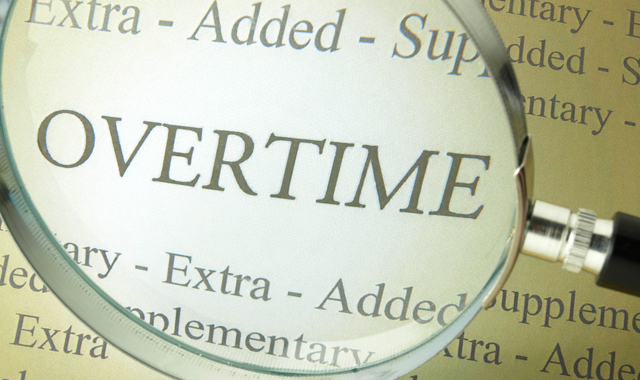What you need to know about new overtime rules that may affect your dental practice
The rule does not apply to dentists, but it may apply to dental practice office managers and dental hygienists.

The U.S. Department of Labor’s (DOL) plan to increase the salary amount that determines which white-collar workers are exempt from overtime pay may affect your practice.
The rule does not apply to dentists, notes Paul DeCamp, former administrator of the DOL’s Wage and Hour Division, but it may apply to dental practice office managers and dental hygienists.
Under the Fair Labor Standards Act, the current minimum salary threshold for overtime pay is $455 per week/$23,660 per year. DOL proposes to increase that minimum salary threshold to $970 per week/$50,440 per year, which would extend overtime to nearly 5 million U.S. white-collar workers within the first year of its implementation.
More from the author: 3 steps to legal, humane employee termination
According to the Bureau of Labor Statistics (BLS), dental office managers made a median income of $77,890 a year in 2010. BLS reports that the median annual wage for dental hygienists was $71,520 in May 2014.
Although the Labor Department doesn’t plan to have a final rule until later in the year, practices should start preparing now for the coming changes, say DeCamp, who is a shareholder in the Washington, D.C., region office of Jackson Lewis P.C.
First, identify all exempt employees who have salaries below $50,440.
“For people who are close, a lot of employers may decide that it’s better to give this person a raise. People on the bubble may get bumped up [to $50,440]. It’s simpler,” he says.
But, “there will be a pain point for any employer, a point where it becomes just too great to raise an employee to the new [salary] level,” DeCamp says. “In that case, you likely need to reclassify them as non exempt.”
That can be done by converting those employees to a daily or hourly rate, he says. Whichever you decide, it’s important to implement some type of time keeping system.
More than half of dental hygienists work part-time, according to BLS. If employees are working 20 or 30 hours a week and rarely exceed 40 hours a week, “there may not be much of a change that has to happen,” according to DeCamp.
Read more on page 2...
State, Local Laws
It’s important for your practice to comply with both federal and state laws and, in some cases, with local ordinances as well, DeCamp says. “Be aware of state or local concerns that are above any requirements of the federal laws.”
For non-exempt workers, the FLSA requires overtime pay at the rate of not less than one and one-half times an employee's regular pay after 40 hours of work in a workweek. But a handful of states have daily overtime regulations, he notes. “If someone works three 10-hour shifts a week, that’s not covered by federal, but it could be counted as daily overtime work in a particular state.”
More from the author: How to effectively manage multiple generations in the practice
California is particularly strict about meal and rest break compliance for these employees, DcCamp adds. In most states penalties for violations are relatively minor. “Only California has a robust penalty that hammers employers.”
It’s important to communicate to your employees that changes are likely on the way, he says. “Dental practices, by nature, are relatively small. Everybody knows everybody. If you are a salary worker today, you probably already have heard about DOL’s proposed regulations; you’re probably heard gossip. There may be a lot of anxiety. Most employers would be better served by being part of the conversation.”
Be open and transparent about the potential changes. “Say, we’re regulated here. When the regulations come out we will study them, examine our options and find a way to comply with the law that is as minimally disruptive as we can,” DeCamp says.
“Tell them, we’re not doing this because we want to mess with anybody, we are required by state and federal law to do certain things. Employees are used to are lots of other regulations such as HIPAA, etc., so this should not come as a shock to them.”
More from the author: What you need in a good employee handbook
So what does "exempt" and "non-exempt" mean?
The terms exempt and non-exempt tend to be confusing. What, exactly, are exempt employees exempt from? The answer: The minimum wage and overtime provisions of the Fair Labor Standards Act.
To qualify for exemption, white-collar employees generally must:
1. Be salaried, meaning that they are paid a predetermined and fixed salary that is not subject to reduction because of variations in the quality or quantity of work performed (the "salary basis test");
2. Be paid at least a specific salary threshold, which currently is $455 per week. (This provision, known as the “salary level test,” may be raised to $970 per week); and
3. Primarily perform executive, administrative or professional duties, as provided in the DOL regulations (the "duties test").
For more information and to stay up to date on federal overtime rules, click here.
Editor's Note: Image via Shutterstock